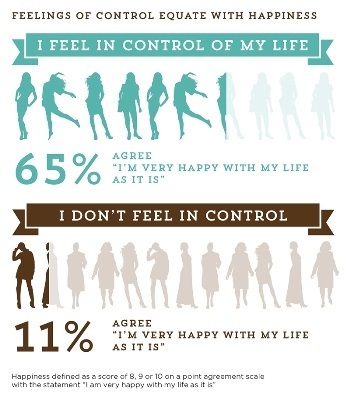Jeremie Averous's Blog, page 93
March 3, 2016
Why It is Important to Take the Time for Real Work
“At many companies the proportion [of responding to emails and other solicitations] hovers around 80%, leaving employees little time for all the critical work they must complete on their own” (HBR – Collaborative Overload). That is evidently consistent with daily observations in most organizations today (when it is not 100% of the time spent interacting, and the important work done on overtime). Yet value is created mainly when one does the real work – reflection, strategic planning and research. There is thus an interesting contradiction, which is mostly created by the bureaucratic effect (organizations creating work for themselves with low value for the client).
 Collaboration Excess?
Collaboration Excess?Reserving certain space for doing the important creative work is an increasingly demanding challenge, in particular in international organizations where time differences add to the calendar strain, and with the interruptions from smartphones. Yet it is so essential to create that value that it is nowadays a strong differentiator in the workplace.
It has actually come to a point where so many people are just reacting to the influx of information and triggers that it is less difficult than before to make a difference by taking some time on some longer term projects and contributions. For example, as a consultant, not being involved in the daily grind of my clients’ organizations is a tremendous competitive advantage that allows me to create value much quicker and effectively than if I was an insider.
Multiply your effectiveness by reserving 20% of your time for an interruption-free focused work on important matters. It will increase significantly your impact and make the difference!

March 1, 2016
Is the Smartphone Tax on our Time and Attention Worth It?
Following up from our previous post ‘How Mobile Phones Distract Us – A Real Life Example‘, Seth Godin speaks of the ‘Paying the smartphone tax‘. Because we are constantly distracted by the device, because we confound urgent and important, and because it seems that it only takes a short time to respond, our lives are deeply transformed. This is a tax on our time and attention. Is it worth it?
 What I personally find annoying is the amount of focus that smartphones tend to command when I am looking at something or interacting with it. It is extremely dangerous – even if I forbid myself to interact with my phone in clearly dangerous situations such as driving, I find myself sometimes in awkward situations because I was not paying attention to my surroundings (missed a bus or train stop looking at his phone anyone?). So the tax is sometimes very high.
What I personally find annoying is the amount of focus that smartphones tend to command when I am looking at something or interacting with it. It is extremely dangerous – even if I forbid myself to interact with my phone in clearly dangerous situations such as driving, I find myself sometimes in awkward situations because I was not paying attention to my surroundings (missed a bus or train stop looking at his phone anyone?). So the tax is sometimes very high.
Seth concludes “Like most things that are taxed, smart phones are often worth it, creating connections and giving us information when we need it. Perhaps, though, turning our phones off for six hours a day would be a useful way to cornering us into creating work we can’t live without”.
Our lives have become more interesting as a result of having a smartphone, but the tax we pay for it on our time and attention might sometimes not be worth the value. Maybe it is time to do an assessment and decide that there might be situations worth shutting the device down?

February 27, 2016
Why Zuckerberg’s Law of Sharing Matters
Mark Zuckerberg (yes, Facebook’s) analyzed the history of online collaboration on Facebook and concluded that the amount of information shared on the internet roughly doubles every year.
 And this is not going to stop with the substantial increase of mobile devices and their ubiquity in particular in emerging and developing countries.
And this is not going to stop with the substantial increase of mobile devices and their ubiquity in particular in emerging and developing countries.
We generally underestimate the power of the exponential, but this is huge! This means that in a limited number of years the increase will be dramatic. The size of the data must even increase more quickly as videos tend to replace simple pictures or music.
Zuckerberg’s law matters because it describes what is really happening with the Fourth Revolution, better than laws focused on hardware capability. We are in an era of exponential increase of exchange and sharing between individuals. And this matters.

February 25, 2016
How to Have Sufficient Control on our Life to be Happy
“The circumstances of our lives may actually matter less to our happiness than the sense of control we feel over our lives” says Rory Sutherland. As we know, feeling in control of our lives is both a need and in some respect an illusion – in particular in the ever more complex world.
 We are thus constantly struggling to adjust between this feeling of control and the reality of the events and constraints that shape what we do and what we decide to do.
We are thus constantly struggling to adjust between this feeling of control and the reality of the events and constraints that shape what we do and what we decide to do.
I believe that what is important is to have a number of areas almost fully under our control, even if the rest is not. We can be fully in control of our garden or some part of our house and at the same time acknowledge that we can’t do anything about the condition of the economy. It is great also to be in a position to see that efforts that we are making towards some goal bear fruits.
Therefore, I believe that what is really important is to have a few areas where this feeling of control is sufficiently high to give us happiness, and acknowledge at the same time that other areas will never be – and not be sour for this.

February 23, 2016
How Mobile Phones Distract Us – A Real Life Example
A restaurant happened to analyze surveillance tapes from 2004 and compared to 2014 to understand some productivity issues (read Restaurant Watches Old Surveillance And Shares Shocking Results On Craigslist). The results are clear: nowadays, mobile phone distraction significantly uses up our time.
Customers use time trying to connect to the wifi, taking picture of themselves and the food, which leads to much more time spent before placing the order and enjoying the food. Waiters’ time is also spent taking pictures of customers and helping them with their connection. And much more time is spent looking at stuff on the phone which adds delays in the entire process.
The issue here is not the impact on the restaurant’s productivity and turn-around (although that must be a huge concern to the restaurant owner because at the end of the day productivity is easily impacted by 20-30%), but this example shows dramatically how mobile phones use our precious time. And in the meantime we also kind of forget to connect with the people we have dinner with in the first place!

February 20, 2016
How to Identify Quality when Products Become Commodities
Following up on our previous post ‘Why Democratization Creates Commodities‘, let’s dwell on the issue of finding quality products in the midst of the avalanche of available products and data.
 Peer ratings are essential in new Collaborative Age to replace the filtering and quality control by institutions.
Peer ratings are essential in new Collaborative Age to replace the filtering and quality control by institutions.
Of course it has drawbacks (creating trends and popularity which might not be entirely warranted) but not necessarily worse than the personal preference of an editor. The main issue is that while the opinion of an editor might be known, collaborative rating has a somewhat unpredictable outcome that might be influenced (and even possibly manipulated) through early ratings generated by supporters. Still when a domain becomes mature, collaborative rating does become effective and less influenced by initial ratings.
Democratization without a peer rating system won’t work. Both need to develop together. Be suspicious of democratization drives that would not be accompanied by a strong peer rating system!

February 18, 2016
Why Democratization Creates Commodities
When capabilities are democratized, handed over to anyone that wants to contribute, they become soon a commodity. This means that their price plummets (often close to zero), and this also means that institutions that were create to vouch for quality disappear.
 Flickr – democratization of photography
Flickr – democratization of photographyA typical area is photography. It is now possible to produce great pictures with mobile phones. If you invest in a dedicated camera, all sorts of automatic settings will help produce pictures of professional quality. While press photography still exists in a more restricted sense, more and more amateur pictures are available and used.
Because amateurs don’t care so much about being compensated because they are having fun, the marginal price of photography is close to zero. Of course there is a lot more average pictures available but among the choice one can still find great pictures.
An ongoing area is education. With online Moocs the institutions that were created to vouch for course quality (universities) will have a hard time, while education will be more available to everybody. At the same time many courses may be more average, but who cares?
Hat tip to Christopher Penn

February 16, 2016
How Having Great Customers is Essential for Product Development
One of the benefits of the ‘lean startup’ approach is to seek customers very early on the basis of a ‘Minimum Viable Product’.
 Having first customers for a startup provides feedback on two levels:
Having first customers for a startup provides feedback on two levels:
customers are ready to buy the product: the product is bankable!
get real-life feedback from the usage of the product by the customer
The second type of feedback is essential as well and it is important to make the effort to collect it. It is also why the quality of the customers is essential: great customers will provide great feedback which will greatly, in turn, improve the product!
“A great customer wants you to be world class, and is willing to help you get there. Learn to spot them early, and then treat them like gold. Enough said.” – Gapingvoid
From the experience of developing a product in our new startup, I cannot agree more with this statement.

February 13, 2016
How to Control our Posture When Using New Technology
Our posture when using portable devices is an issue. Not just regarding joint pain, but also when it comes to creativity and mood. In this excellent paper the NYT explains why ‘Your iPhone Is Ruining Your Posture — and Your Mood‘.
 “Technology is transforming how we hold ourselves, contorting our bodies into what the New Zealand physiotherapist Steve August calls the iHunch”. And posture influences our mood like we explained in our posts ‘How simple is it to get positive emotions?‘ and ‘How we actually think with our bodies‘. So, as a result, because we tend to slouch when using portable devices, we are fostering negative emotions, such as “lower self-esteem and mood, and much greater fear”.
“Technology is transforming how we hold ourselves, contorting our bodies into what the New Zealand physiotherapist Steve August calls the iHunch”. And posture influences our mood like we explained in our posts ‘How simple is it to get positive emotions?‘ and ‘How we actually think with our bodies‘. So, as a result, because we tend to slouch when using portable devices, we are fostering negative emotions, such as “lower self-esteem and mood, and much greater fear”.
Stand up people of the Collaborative Age! And let’s hope that maintaining posture will be one of the key learning points of the schooling of the netizens of the future!

February 11, 2016
How Cars Are Nowadays The Most Sophisticated Machines on the Planet
“New high-end cars are among the most sophisticated machines on the planet, containing 100 million or more lines of code. Compare that with about 60 million lines of code in all of Facebook or 50 million in the Large Hadron Collider” – according to the New York Times ‘Complex Car Software Becomes the Weak Spot Under the Hood’.
 Cars were previously a much less complex contraption…
Cars were previously a much less complex contraption…Complexity is there – many different parts with various codes that need to communicate so that everything works. Results can be quite unpredictable. Cheating can even be hidden inside the code, as the recent Volkswagen scandal showed.
The issue of code safety is a tremendous challenge to manufacturers and regulators alike. A strong position would require to remove all code lines that are not used in a particular model, but that is extremely costly as it goes against standardization. At some point it will be difficult to avoid unpredictable behavior of the system if there are various computing centers performing different functions in the car. Today, access to the proprietary code used by automakers is not even granted because of copyright protection. This will certainly evolve, and a framework for guaranteeing a minimum level of code reliability will have to be put in place.





